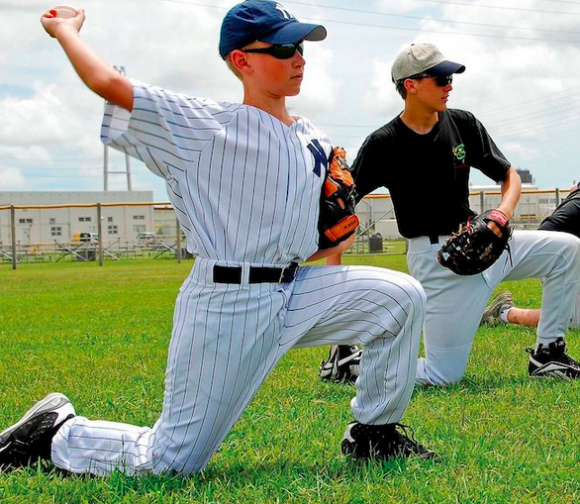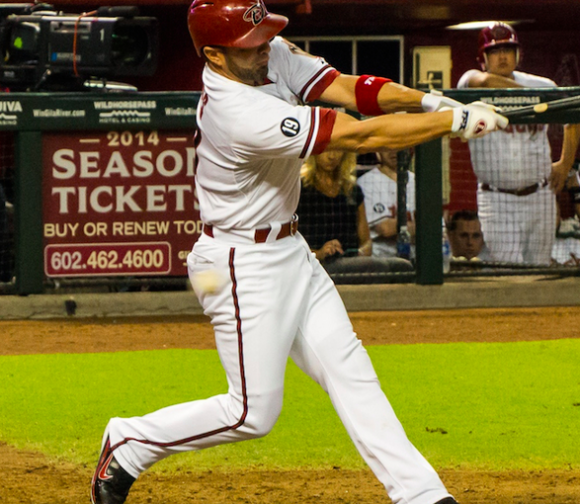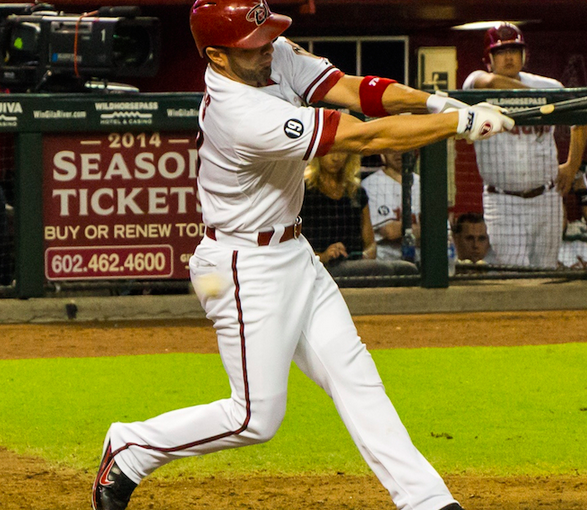aNewDomain — Pro baseball teams average just four runs per game. That’s fairly lousy. No wonder baseball is so in danger of losing its younger fan base.
The league itself is fiscally healthy. Profits are at an all-time high. But younger fans want more scoring and more drama, and baseball’s not delivering.
 Shrinking the strike zone to help hitters isn’t the answer. That would be just wrong. Lowering the mound would be wrong, too. In the big leagues, pitching talent is at the highest level it’s been for generations. That’s the problem, actually. Specialization is killing baseball. And the designated hitter rule isn’t helping the situation.
Shrinking the strike zone to help hitters isn’t the answer. That would be just wrong. Lowering the mound would be wrong, too. In the big leagues, pitching talent is at the highest level it’s been for generations. That’s the problem, actually. Specialization is killing baseball. And the designated hitter rule isn’t helping the situation.
Why Specialization Is Killing Baseball
Forcing kids to play just one spot from the moment they enter a “travel club” at about age seven is the problem.
Specialization seems positive on the surface, maybe. It gives players more experience in the sport. It builds up their skills and makes them more efficient and streamlined ballplayers. But in the end, specialization actually decreases the talent pool for hitters, and it puts pitchers at a disadvantage.
Designated Hitters: Diluting The Talent Pool
Because of specialization, pitchers are more polished. This is true despite concerns about “Tommy John surgeries.” So high school and college coaches end up pulling their star pitchers from the batting roster — via the designated hitter rule. This might prevent needless mishaps, but it also keeps promising kids from developing into the well-rounded players they could be.
 The whole system conspires to rob baseball of the large number of quality hitters it would otherwise get.
The whole system conspires to rob baseball of the large number of quality hitters it would otherwise get.
These pitchers don’t get the opportunity to swing the bat during a game. So if they blow out their arm on the mound, they can’t contribute to their team in any meaningful way. Pitchers are good athletes. Given the chance and the reps, they have the potential to be good hitters, too.
In high school, mind you, pitchers comprise about half of the squad. But with the designated hitter rule in place, most of them get no real chance to prove themselves as hitters. And the DH rule will follow them around their entire careers.
It’s true, I know, that pitching in major league baseball is getting better and better. But the available pool of sluggers is getting increasingly shallow. No wonder hitting talent is flagging. Meanwhile, thanks to specialization and the DH implementation, pitchers have gotten too good.
This is why most pitchers (not named Madison Bumgarner can’t hold their own in the batter’s box once they reach the big leagues. Eliminating the DH rule and reducing specialization in high school and travel ball would be a 10- or 15-year solution, at best. But it would work. And it sure inject a lot of needed offense — and excitement — into baseball.
For aNewDomain, I’m Ben Leonard.
A version of this story ran on aNewDomain’s BreakingModern in June 2015.
Featured image: Wil Nieves Wikimedia Commons
First image: Youth Baseball Wikimedia Commons
Second image: Wil Nieves Wikimedia Commons













